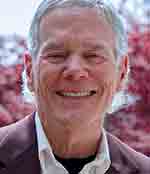Speaker Spotlight: The COVID-19 facemask: More of a ‘helpie’ than a ‘selfie’

EDITOR’S NOTE: Every year, the National Safety Council Congress & Expo features some of the top thought-leaders and motivators in the occupational safety and health community. Safety+Health has invited the most highly rated presenters to contribute to this monthly column. For more on this year’s event, visit congress.nsc.org.
Defeating the COVID-19 pandemic requires certain disease prevention behaviors by the public: sheltering at home, maintaining 6 feet of physical distance from others and wearing a facemask. Such health-related behaviors are akin to the variety of safety-related behaviors workers are urged to practice on the job – from wearing a hard hat and safety glasses to buckling a safety belt and using fall protection. In addition, the intervention techniques applied to encourage individuals to practice these safety and health behaviors are similar – from top-down and interpersonal appeals to legal mandates. Moreover, the positive and negative reactions of individuals “burdened” with performing inconvenient behaviors for the benefit of health and/or safety are common, whether in the work-place or in the community.
Safety professionals are all too familiar with the phrase, “It won’t happen to me,” and not surprised by the ad-verse public reactions to the top-down rules and regulations implemented to help keep people safe from COVID-19. When people believe their freedom or independence is threatened, they are inclined to behave oppo-site to the mandate and assert, “It’s a free country. If I want to put myself at risk for infection by COVID-19, I have the personal right to do so.”
PPE with an ‘AC4P’ purpose
Using personal protective equipment in the workplace mostly benefits the individual donning the PPE. Wearing a facemask during the pandemic, however, has a higher-level, “actively caring for people” purpose. Facemasks help prevent the spread of the potentially deadly disease, from the mask wearer to everyone who comes in close contact with this individual. Thus, facemasks are more of a “helpie” than a “selfie.”
Consider this recent interpersonal exchange. Matt, 47, was leaving a grocery store wearing a facemask when a stranger approached him and asked, “Why are you wearing that mask?” Matt replied, “Because I care about you.” The stranger responded, “Whatever, you don’t even know me.” Matt retorted, “Yeah, pretty cool, huh?” The stranger looked at Matt incredulously and then Matt asked, “How come you aren’t wearing one?” The stranger replied, “Because I don’t feel like it.” Matt responded, “Well, OK. Peace be with you,” as the stranger walked away shaking his head.
An AC4P behavior
When people wear facemasks, they’re demonstrating AC4P behavior. Matt did even more, though. He asked a stranger why he wasn’t wearing a mask, perhaps looking for an opportunity to encourage that individual to con-sider wearing one – not only for himself but for others.
Thus, this pandemic offers a special challenge for safety and health professionals worldwide. Beyond per-forming an AC4P behavior by wearing facemasks themselves, safety and health leaders need to convince others to wear them in public.
However, attempts to influence this critical behavior shouldn’t challenge an individual’s perceived choice by being too directive. Be like Matt and ask politely, “Why aren’t you wearing a facemask?” And, of course, you have a spare unused mask available in a zip-close bag if you hear, “I don’t have one.”
Your polite retort to the common excuse, “I don’t need to wear one because I don’t have the coronavirus,” should be something like, “Wearing a facemask sets the right example for others. The more people wearing masks, the less the spread of this devastating virus.” The more people prompting and supporting this mask-wearing behavior, the more people becoming AC4P COVID-19 facemask wearers.
This article represents the views of the author and should not be construed as a National Safety Council endorsement.
 E. Scott Geller, Ph.D., alumni distinguished professor and director of the Center for Applied Behavior Systems, just completed his 50th year as a teacher and researcher in the department of psychology at Virginia Tech. He is a co-founder and senior partner of Safety Performance Solutions Inc. and GellerAC4P Inc.
E. Scott Geller, Ph.D., alumni distinguished professor and director of the Center for Applied Behavior Systems, just completed his 50th year as a teacher and researcher in the department of psychology at Virginia Tech. He is a co-founder and senior partner of Safety Performance Solutions Inc. and GellerAC4P Inc.
Direct to your inbox: Sign up to be notified in email about new “Speaker Spotlight” columns.
Post a comment to this article
Safety+Health welcomes comments that promote respectful dialogue. Please stay on topic. Comments that contain personal attacks, profanity or abusive language – or those aggressively promoting products or services – will be removed. We reserve the right to determine which comments violate our comment policy. (Anonymous comments are welcome; merely skip the “name” field in the comment box. An email address is required but will not be included with your comment.)

